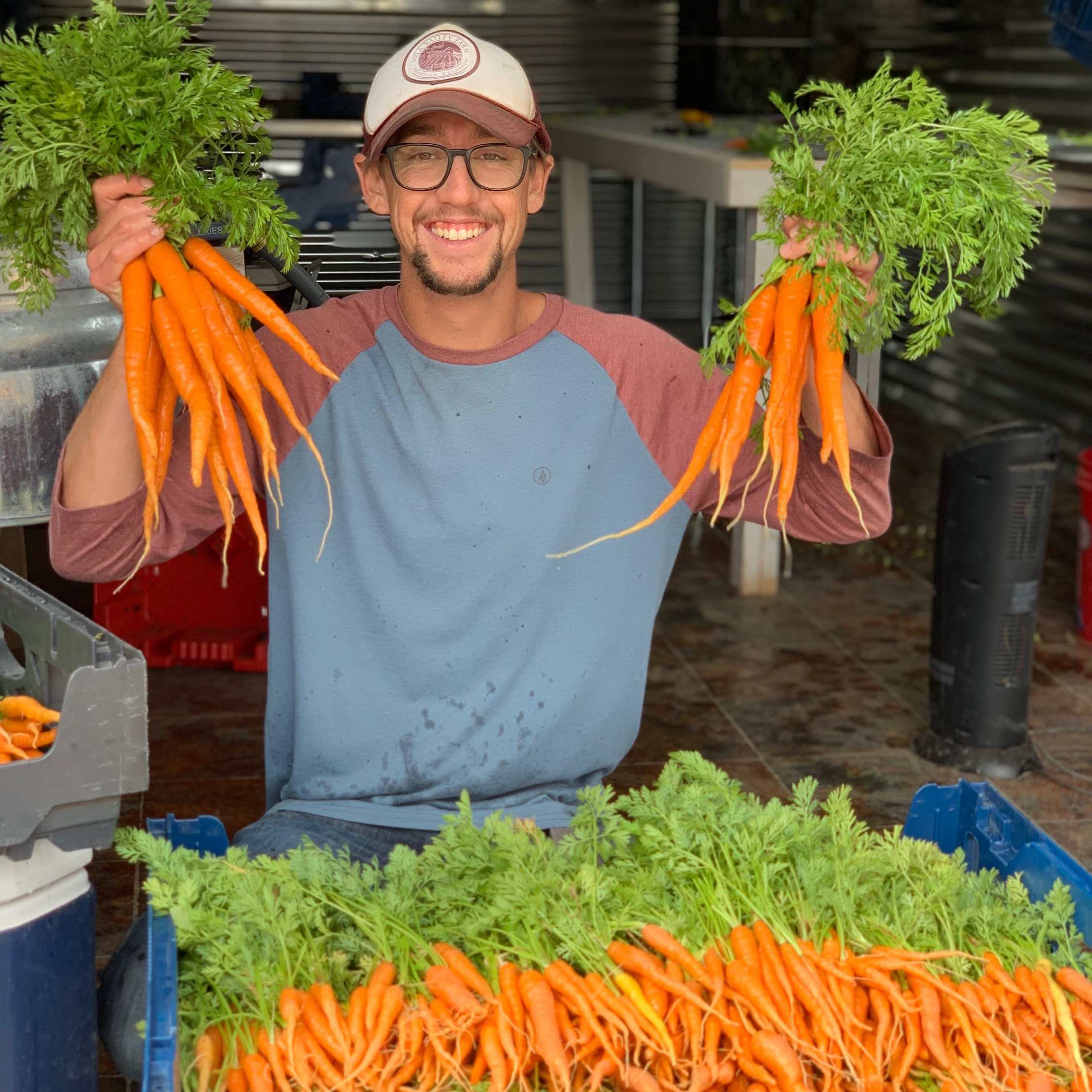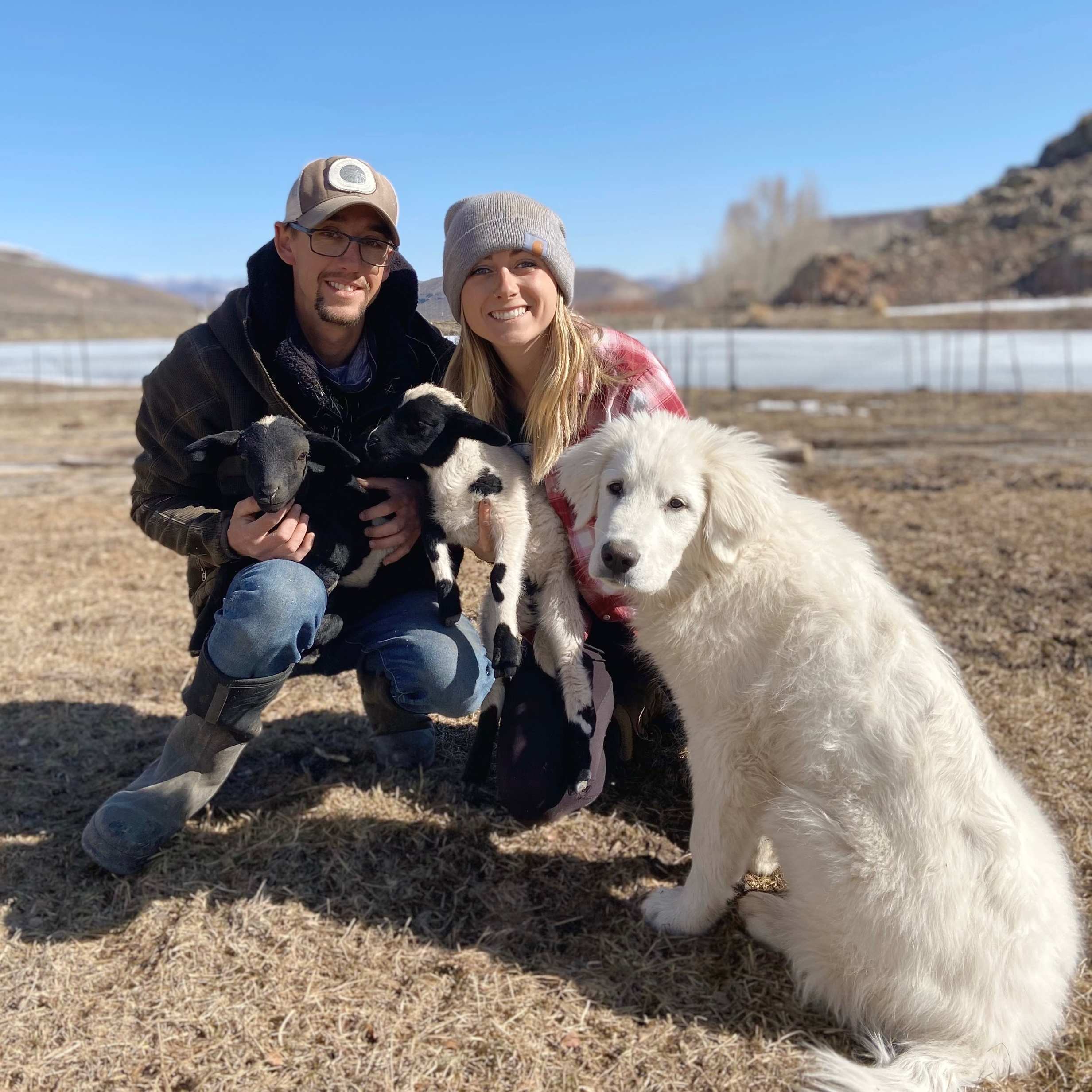Producer


Iola Valley Farm
Address: 133 E Tomichi Gunnison, CO, 81230
Phone: 402-672-4564
About Us
Iola Valley Farm, nestled in the mountains between Blue Mesa Reservoir and Powderhorn, has two acres under production of non-certified organic produce, as well as additional acres for a growing sheep herd, countless chickens, eight cows, two donkeys, two horses, two pet turkeys, and two beloved livestock guardian dogs. Matthew Ozyp started the farm in 2017 with a dream to see the Valley he was born and raised in become more self-sufficient and focused on nourishing, local, and organic food. With the population in the United States continually suffering from obesity, health issues, cancer, and a furthering distance from knowledge of where their food comes from, Matt wanted to change these fundamental societal issues in the community he loves through local farming. His goal is to see Gunnison Valley’s restaurants, families, and community members have access and knowledge about local food in order to have a more connected, healthier, and stronger community.
Matt has a particular passion for growing tomatoes, so about 4 of our 14 hoop houses are dedicated to growing the Valley tomatoes each year. However, we also grow storage and root crops, beans and peas, tomatillos and ground cherries, squash and cucumbers, brassicas, and an extraordinary amount of salad greens.
In 2019, Alexis Taylor joined Iola Valley Farm as the Farm Operations Manager, creating a CSA program and focusing on the business aspect of farming. After working at Mountain Roots Food Project, Alexis wanted to get her hands dirty and learn the ins and outs of local farming. Currently, she is expanding her medicinal and cut flower operation, managing the CSA and business operations at the farm, assisting with farming tasks, and working part time at Rooted Apothecary. Her favorite things to grow are tomatillos, kale, herbs, and flowers.
Matt has a particular passion for growing tomatoes, so about 4 of our 14 hoop houses are dedicated to growing the Valley tomatoes each year. However, we also grow storage and root crops, beans and peas, tomatillos and ground cherries, squash and cucumbers, brassicas, and an extraordinary amount of salad greens.
In 2019, Alexis Taylor joined Iola Valley Farm as the Farm Operations Manager, creating a CSA program and focusing on the business aspect of farming. After working at Mountain Roots Food Project, Alexis wanted to get her hands dirty and learn the ins and outs of local farming. Currently, she is expanding her medicinal and cut flower operation, managing the CSA and business operations at the farm, assisting with farming tasks, and working part time at Rooted Apothecary. Her favorite things to grow are tomatillos, kale, herbs, and flowers.
Practices
Iola Valley Farm is a non-certified organic farm, working on regenerative practices, such as rotational animal grazing, reduced or no-till beds, composting, and crop rotations. We do not use any chemicals, herbicides, or pesticides, and we strive to create a healthier soil that will in turn create healthier plants and healthier people. As of 2020, we use only our own compost, which we are working to turn into compost tea and mix into our soil. During the winter, we rotate our sheep and chickens through our growing spaces in order to increase nitrogen and healthy bacteria into our soil. We use a combination of low-till and no-till methods, and we never monocrop. Rotating crops, such as legumes for nitrogen-fixing and garlic for soil-amending, is another way that we ensure our soil continues to be healthy both for the farm and for the planet.
